Groups
-
david-manglideposted in News & Trends • read more
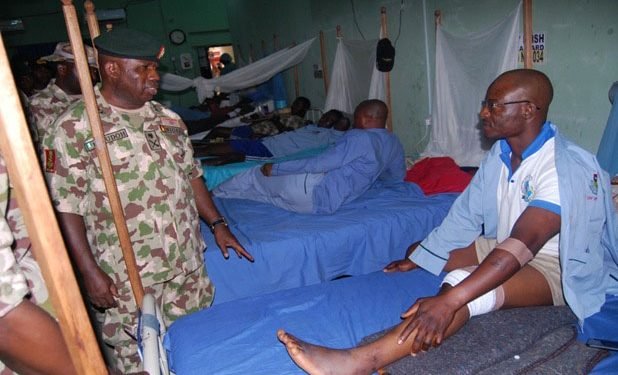
Only 29 soldiers died during last week’s ambush of troops at Goniri and Gorgi by Boko Haram Terrorists (BHTs), Nigeria Army Operations Media Coordinator, Col. Aminu Iliyasu has said.The military had earlier told reporters that initial information available indicated that 47 soldiers were killed in the attacks that occurred on March 22 and 23, noting that further verification would be given after stocks must have been taken at the bases of troops attached to Operation LAFIYA DOLE.
Making the clarifications on Friday, Col Iliyasu said the Chief of Army Staff (COAS) Lt.-Gen. Tukur Buratai sent a delegation led by Chief of Training and Operations (Army), Maj.-Gen. Enobong Udoh to the northeast to ascertain the state of affairs.
Others in the delegation which spent two days in the area, included Chief of Military Intelligence, Maj.-Gen. Samuel Adebayo, Director, Campaign Planning, Maj.-Gen. Christopher Musa and Deputy Director, Peacekeeping Operations, Colonel Samaila Uba.
Iliyasu also said a visit to 7 Division Medical Services and Hospital in Maimalari Cantonment by the delegation revealed there were 61 injured personnel including seven officers being treated in the hospital.
He said the 61 wounded comprised those from previous encounters as well as personnel who sustained injuries in the ambush.
Iliyasu said: “On arrival at Maiduguri at about 6pm on March 24, the COAS proceeded straight to the Headquarters, Theatre Command, Operation LAFIYA DOLE, where he was briefed on the said encounter by the Theatre Commander, Maj.-Gen. Olusegun Adeniyi. The Theatre Commander explained that, on March 22, having captured and cleared Gorgi of the Boko Haram insurgents, he led the troops to harbour about five kilometers ahead of the location.
“However, at about 7am on March 22, when the troops were preparing to continue with their advance to clear other Boko Haram enclaves in the area, the insurgents attacked the rear elements of the advance force in an attempt to overrun them.
“The gallant troops repelled the attack, inflicting heavy casualty on the terrorists. In the aftermath of that encounter, no less than 150 Boko Haram terrorists were neutralised by the gallant troops while a large number of them retreated with gunshot wounds. Many of their equipment were also destroyed.
“However, 29 personnel of Operation LAFIYA DOLE paid the supreme price during the encounter as a result of the multiple explosions that occurred when the engine of an army truck conveying artillery bombs, explosives and other munitions caught fire after being hit by a Rocket Propelled Grenade (RPG) bomb fired by the insurgents.
He noted that some soldiers sustained various degrees of injuries and were evacuated to the 7 Division Hospital Maimalari Cantonment where they are responding to treatment.
Iliyasu said the delegation proceeded to Headquarters Sector 2 in Damaturu after a thorough briefing by the Theatre Commander on Wednesday morning, March 25.
He said the COAS addressed the troops that took part in the Gorgi operations, adding that they were in high spirits following their resounding victory over the terrorists during the encounter.
-
david-manglideposted in News & Trends • read more
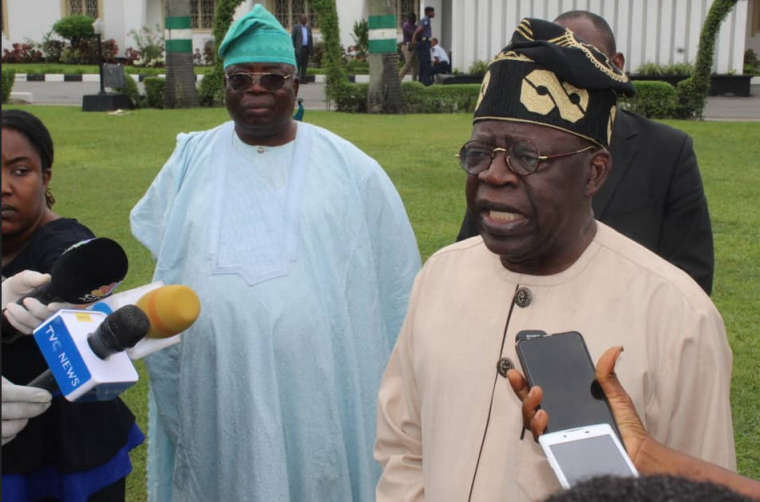
On the eve of his birthday, Bola Tinubu issued a long statement detailing ideas of what President Buhari and his team can do to navigate Nigeria out of a possible recession that will arise from the pandemic as oil prices fall and government revenue shrinks.His statement is titled: A message on the coronavirus: A time for unity, a time for thought, a time for action:
Speech below:
Today is my birthday. I thank God for giving me the life and time on earth he has provided me. He has blessed me beyond the ability of words to describe; I am more than cognizant of His great mercies toward me. I have much to be thankful for. However, this is not the moment for exuberant celebration or light talk on my part. At this moment, it is better that we confer in prudence and wisdom, one to another, so that we can better deal with that which seems eager to severely deal with us.
We have entered a sobering period. We face a challenge we cannot see but one that can find us all too easily. As individuals, this puts every one of us at a startling disadvantage. Each is rendered vulnerable by the reckless act of his neighbour. Each is made safer by the enlightened conduct of a stranger. The very nature of this assailant calls us toward greater unity and kindness.
In the normal push of our daily affairs, we tend to focus on what divides us. We are either APC, PDP or another political affiliation. One person is rich. Another is poor. There is the labourer then there is the boss. One person is of the north, another of the south, with both often acting as if the boundary between the two cannot be traversed. We are of different ethnic groups; these identities mean so much to us that we behave as if the affiliations are the very source of our humanity. In this, we tend to forget God. Even when we worship God, we divide ourselves in ways that too often bring violence to a way of life meant to bring peace and compassion.
But, the coronavirus is now here. If we carry forth in our usual ways, we may well carry ourselves into national disaster. Normal practices will not suffice. We all must do better lest we all fail and suffer the grave consequences of collective failure. We pray that this terrible cloud will pass from us. However, we must prepare for the possibility that it may linger to rain hard upon us.
For the past 11 years, a colloquium was held on my birthday. Each year, the colloquium gathered some of our best minds in both the public and private sectors. They would dissect and explore the weighty issues of the day in order to find solutions to the social, political and economic difficulties that confront our nation. However, the threat of the coronavirus obligated colloquium organizers to postpone the event; we did not want a large number of people gathered in a relatively compact physical space. This was a decision well taken.
It has been a custom at the colloquium that I offer a few comments pertaining to the issue at hand.
In the spirit of the colloquium, I offer these remarks today. In that coronavirus put a brake on the colloquium, I thought it proper to return the favour. I therefore tender these humble comments in hope they contribute to halting the spread and ill consequences of this dreadful sickness.
The foremost imperative is that we recognize that corona is here. We must cast aside the myths that we have comforted ourselves with these past weeks. We told ourselves this was not a black man’s disease. We took false comfort in this self-deception. Well, black people have contracted the ailment; black people have also died from it. We hoped that our hot climate would bake and destroy the virus. That wish now appears too optimistic. We even said our history in dealing with malaria and other tropical diseases granted us some type of immunity. Well, I doubt that immunity exists as there is no scientific evidence supporting this claim. If such an immunity exists, it is at most incomplete and so unreliable as to be of no avail to large segments of our population.
The rich cannot bargain with the disease or pay it off. It neither reads bank account statements nor is it intimidated by them. The poor, likewise, are subject to it for it has no mercy nor cares about one’s prior or present hardships. Neither does it seem to study geography. Northerner and Southerner are equally its prey. It will attack those who pray at the altar in church as well as those who face the Qiblah when praying in the mosque. To corona, we are all the same. Thus, to fight corona, we must treat each other the same, as brothers and sisters in one national family under one Heaven. For we are of one blood; this crisis is a stark warning that we must begin to act in consonance with that common humanity.
It is true that we and other African countries are among the nations thus far least affected. However, we must not think this means geography and climate have erected a protective shield on our behalf. At best, these things constitute a partial barrier that may have slowed but will not prevent the growing threat.
China and other Asian nations took drastic, wholesale action to thwart the viral spread. North America and Europe initially took small steps against the virus. Those did not work. Now they are fast implementing lockdowns of whole cities and closures of key segments of their economies.
We must be prepared to do the same, though it is alien to our communal culture and way of life. Let us be frank. The public health care systems of developed nations have been overwhelmed by this virus. They are running out of equipment and healthy doctors. Our public health care system is much smaller and less equipped than those in Europe and North America. We cannot afford to put undue pressure on our system because it cannot bear the great weight of a pandemic. Thus, it is incumbent on us to thoroughly implement and obey social safety and distancing techniques so that we halt the spread of the disease and keep hospitalization to the barest possible minimum.
Second, limit your social contacts. Unless for necessary matters, one should not venture out. To purchase food is essential. To redo one’s hair or go to a bar for a drink are not.
Places like banks offer needed services such as cash withdrawals. But they should limit the number of customers in the bank at any given time. Supermarkets and grocers should do the same.
We should continue to postpone sporting events, weddings, and other large gatherings. Funerals, if they must take place, should be attended only by small numbers of family members.
While we put aside the large events for now, we must do better looking after our fellow man. Please check on a neighbour. Make sure the elderly near you are well and have food and water.
Use this moment to teach your children about compassion and the traditional values of care and concern that often get diluted in our rush toward modernity and growth.
Not only is the coronavirus a health and medical problem, it will bring heavy economic costs. China and the West face severe economic contractions. Cities are shuttered. Multiple industries have closed. Millions have suddenly been rendered jobless. Supply chains have busted. Economic activity is a fraction of what it was just a month ago. Deep recessions are forecasted. Some experts fear depression now tracks the world down. Governments worldwide are responding by embarking on unprecedented stimulus packages to keep their economies afloat.
The Chinese are pumping untold trillions into their financial markets and productive economy. The most austere large nation, Germany, casts aside its constitutional prohibition on deficit spending to enact a historic, unprecedented fiscal stimulus package. The free-market Tory government of Boris Johnson has abjured his conservative upbringing if but for this harsh moment. His government is launching a fiscal stimulus unseen in the UK for decades. Likewise, the Bank of England vows to pump as much money into the financial market as is needed to unfreeze it and get it working again.
The conservative Trump government also abandons its laissez faire ideology in the face of this exigency. Trump wants to give 2 trillion in fiscal stimulus and this will likely be just the first tranche. The Federal Reserve has announced an aggressive monetary policy to bolster the financial sector. This is atop the 2 trillion the Fed already promised.
In the end, do not be surprised if the US government injects over 5 trillion new dollars into the economy in the months to come. This would represent 25 percent of last year’s GDP for that nation. Moreover, the US economy is also enacting various forms of debt moratoria such as forbearance on rental payments for struggling families and small businesses to tax relief of various types for companies large and small.
This is truly an eye opening endeavour based on lessons learned from the 1929 Great Depression when government failed to appropriately act and the 2009 Financial Crisis when governments acted in time.
The lesson learned is that a government has the sovereign power and requisite duty to intervene in the economy in order to stave calamity. To aid in this task, a government has the unlimited ability and again public duty to issue as much of its own currency as needed to quell shortage and buffer the populace from hardship.
We, fortunately, are not at the stage where we need to implement such strong economic measures; however, we should be preparing a response for that urgent moment may fall swiftly upon us. In doing so, we must be guided by the same lessons other nations have followed. When it comes to expenditures that can only be made in dollars, we must be extra careful. Dollars now come at a steep premium. However, when it comes to expenditures that can be made in naira, government cannot afford to be bashful or reticent when the need arises.
Already, the price of oil has fallen to less than 30 dollars a barrel. This will bring a dollar shortfall. This does not, however, necessitate a corresponding shortfall in public sector naira expenditures. The US controls dollar issuance. We control naira issuance as is our sovereign right. Just as America has used its sovereign right to issue its currency to stave economic disaster, so too may Nigeria issue naira for the same purpose.
While individuals, companies and even state governments can go bankrupt during hard times, the federal government cannot become naira insolvent because it has the ability to issue our national currency. He who holds the printing press is never insolvent. The most serious concern and limitation on federal naira spending is not insolvency but inflation. Consequently, should circumstances require increased spending, we should not hesitate to do so; but we must keep the watchful eye to ensure inflation does not climb too high. However to save both lives and livelihoods during a moment of historic emergency, a touch of extra inflation from enhanced government spending is a small price to pay. In fact, it is a price that must be paid. The alternative may be a harmful deflation which historically has proven more difficult to tame and cure than a small inflationary increase.
In all of this, the international financial institutions such as the IMF and World Bank must be cooperative and forward-leaning. These institutions must discard their mainstream orthodoxy of fiscal austerity which will straitjacket and injure nations like ours. They must encourage nations to engage in economic stimulus. Moreover, they must suspend debt repayments for poor and developing nations and begin to fashion a plan of partial debt forgiveness for indebted nations.
Below are a few preliminary thoughts on the economic action we might take should the coronavirus mortally threaten our economy.
- MAINTAIN GOVERNMENT EXPENDITURES: The natural instinct will be to reduce spending. Such reductions may be prudent for individuals and households. For government to move in this direction only feeds economic carnage by amplifying economic hardship. Prudent fiscal policy is generally “countercyclical.” As the private sector shrinks, government does more.
At minimum, the federal government must stick to its naira budgetary expenditures. In fact, government should increase naira expenditures by at least 10 – 15 percent during an emergency.
Allocations to state and local governments should be included in this addition. If not, we risk subnational recessions in important sections of the country.
- GOVERNMENT PROJECTS: If the virus is largely kept from becoming a widespread public health menace, government should accelerate spending and actual work on key infrastructural projects particularly regarding transportation. This will lower costs while bolstering the economy by generating employment and business activity.
If the virus does become a large-scale public health challenge, more funds should be allocated to the health sector.
-
TAX REDUCTIONS: Government should announce a tax credit or partial tax reduction for companies or firms. VAT should be suspended for the next 2-4 months. This will help lower import costs and protect against shortages.
-
FOOD SECURITY: We need to protect the people from food shortages and high prices. As such, we must quickly improve farm-to-market delivery of agricultural produce. Also, government should initiate a crash program to decrease spoilage of agricultural produce by construction of storage facilities in local marketplaces in and around major cities and towns throughout the country.
We must establish a strategic grain reserve. Government should help ensure supply by establishing minimum premium price for certain food products.
-
LOWER INTEREST RATES: CBN should lower interest rates to spur borrowing and private sector activity.
-
QUANTATIVE EASING: CBN and other financial regulators should be alert to signs of fragility in the financial markets and banking sector.
The Central Bank should be prepared to enact extraordinary measures should the financial sector exhibit stress. The CBN should be prepared to give banks liberal access to its loan discount window to ensure adequate liquidity within the banking sector. The Cash Reserve Requirement for banks should be revised downward.
Also to ensure liquidity, the CBN should be willing to expand its balance sheet and improve liquidity by purchasing government bonds and other instruments held by banks and other institutions.
The Nigerian stock market is falling. CBN and others should be planning how they might intervene to prevent a potential run on the stock market. Potential measures include expanding Quantitative Easing to enable the Central Bank to purchase strategically important instruments trading in the stock market and instituting a moratorium on margin calls.
- EXCHANGE RATE: The Corona crisis will shrink the inflow of dollars. Hopefully, this is temporary, no more than a few months. CBN can allow some downward pressure on the naira without energetically intervening to defend the exchange rate. Only if and when the rate seems that it might dip precipitously should the CBN intervene.
The Bank may want to revisit its decision prohibiting non-institutional Nigerian dollar holders from participation in Open Market Operations. Greater leniency will bring more dollars into the CBN.
-
DEBT SUSPENSION: If economic trouble does come, government must be willing to freeze payment of certain consumer-related private debts. Evictions, foreclosure and light and water cut-offs might have to be suspended. Suspension or partial reduction of payment of school fees for our most indigent families must be considered (that is when schools reopen) while government offers temporary support to the schools themselves.
-
INCREASE STIPENDS TO THE POOR: We must be ready to increase stipends to the poor. We do this by widening the net, substantially increasing the number of recipients of anti-poverty stipends.
In conclusion, I proffer these measures not as some comprehensive solution. I hope these ideas spark needed dialogue about the ways we may need to employ to protect our nation from assault by the coronavirus. I do not know if such a confrontation shall come. What I do know is that wise preparation will carry us close to victory. Unity, compassion and brave implementation of good policy will take us the rest of the way home.
We shall not go down. We shall rise.
-
david-manglideposted in News & Trends • read more
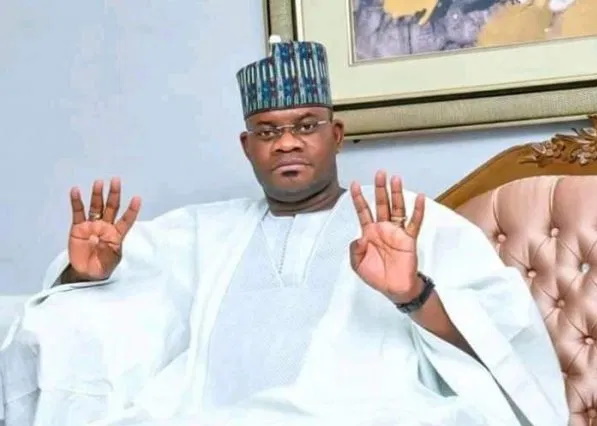
The Network of People living with HIV/AIDS in Nigeria (NEPWHAN), says Kogi’s Gov. Yahaya Bello’s comment on HIV/AIDS is a complete violation of the anti-stigmatization and discrimination law of 2014.Abdulkadir Ibrahim, the National Coordinator of NEPWHAN, who spoke on behalf of members, said HIV/AIDS was not more deadly than Coronavirus (COVID-19), as presented by Bello.
Ibrahim was reacting to the governor’s comments while debunking the rumour that he was COVID-19 positive, in a short video clip that went viral.
The NEPWHAN helmsman noted that Bello had said anyone wishing that he contracted the disease would be infected with HIV/AIDS.
He urged the governor to immediately apologise to persons living with HIV or legal action would be instituted against him.
“How can a governor make such a stigmatising comment, as if HIV is a death sentence, or as if it is more deadly than COVID-19.
“One can embrace an HIV positive person, as well as shake their hands, but one cannot do the same to a COVID-19 patient, proving the deadly nature of the disease,” Ibrahim said.
According to him, research has proven that HIV patients could live normal lives without transmitting HIV to others, a system called; Undetectable equals Untransmissible (U=U).
He, therefore, called for collective condemnation of such discriminatory remarks.
Ibrahim urged the National AIDS Control Authority (NACA), to step-up enlightenment on the challenges and nature of people living with HIV/AIDS, in order to correct negative impressions that could be created by such comments.
-
david-manglideposted in News & Trends • read more
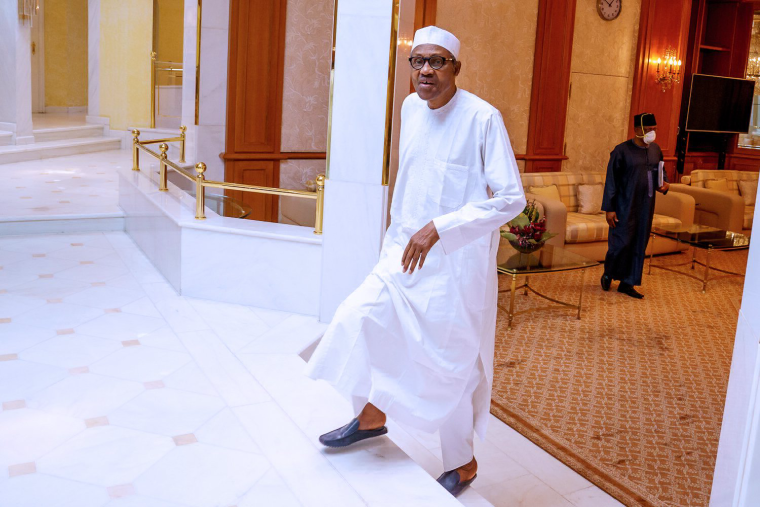
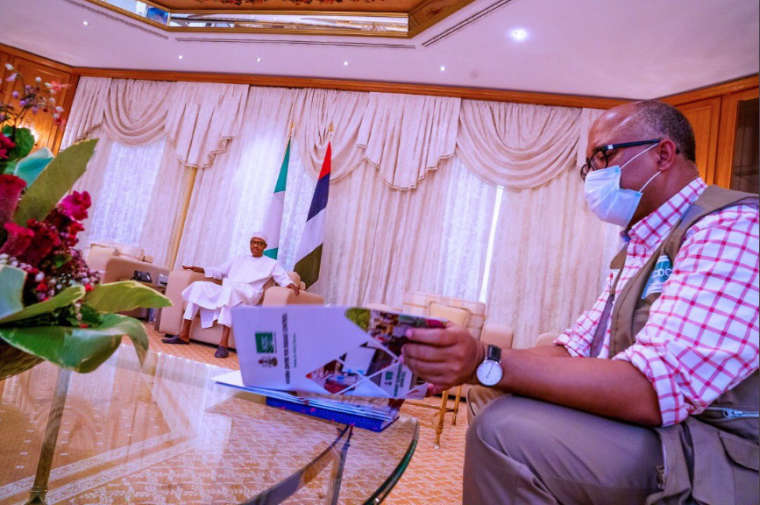
President Buhari today received #COVID19 briefing from Minister of Health
@DrEOEhanire and DG @NCDCgov @Chikwe_I at the State House | Saturday, March 28, 2020 #SocialDistancing #CoronavirusPresident @MBuhari receives #COVID19 briefing from Minister of Health @DrEOEhanire and DG @NCDCgov, @Chikwe_I at the State House | Saturday, March 28, 2020 #SocialDistancing #Coronavirus pic.twitter.com/a6kIGdQI23
— Presidency Nigeria (@NGRPresident) March 28, 2020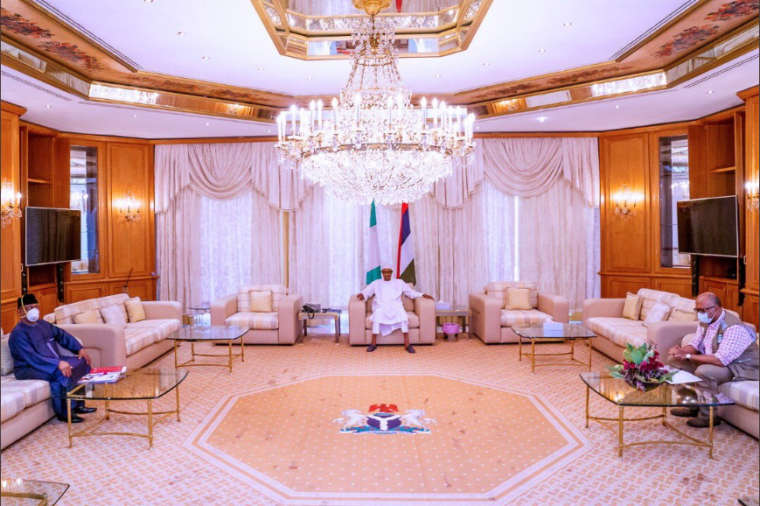
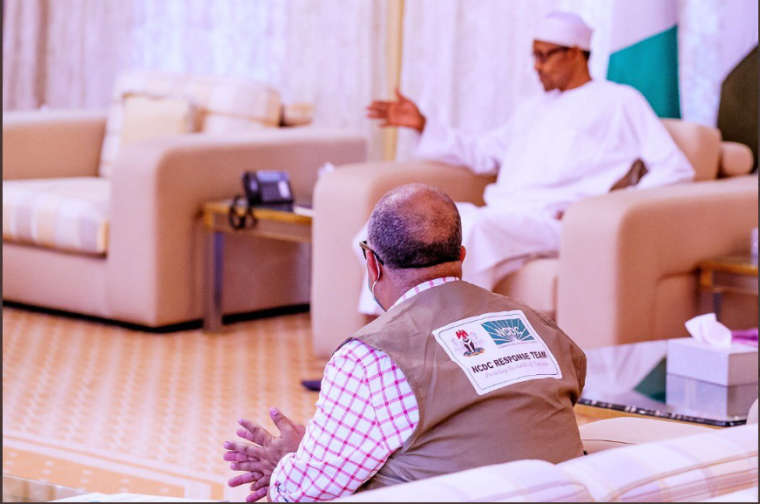
Watch Video:
https://youtu.be/jbA9dlRPAOI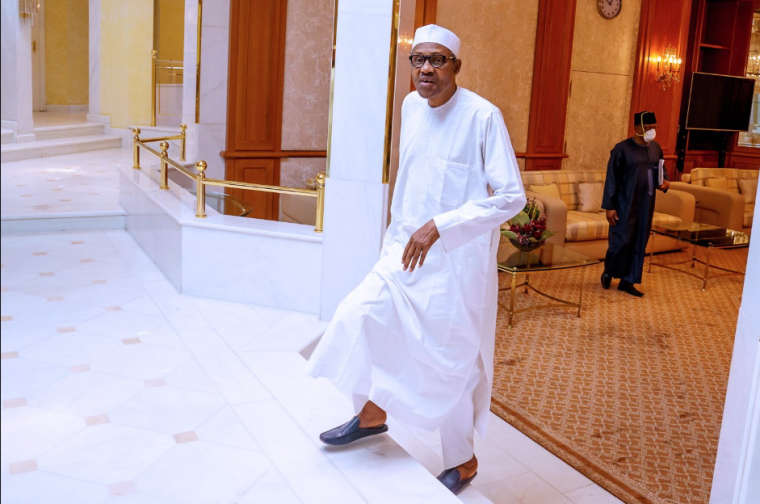
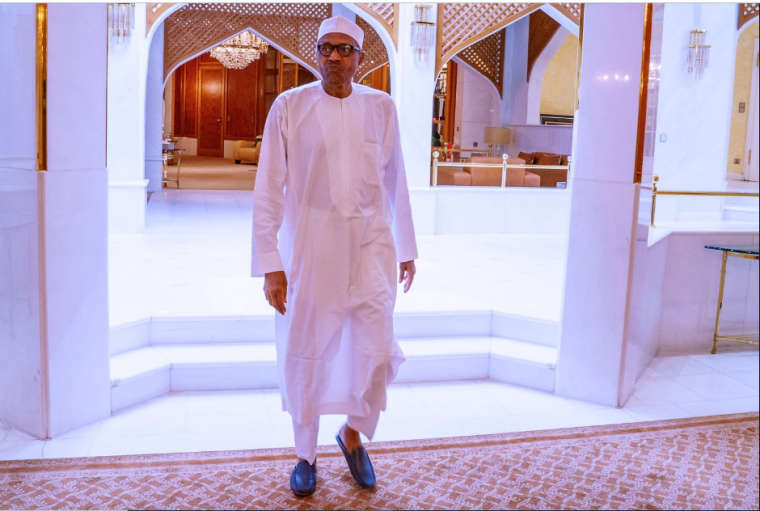
President @MBuhari receives briefing from Minister of @Fmohnigeria, @DrEOEhanire and DG @NCDCgov, @Chikwe_I at the State House, Abuja.#AsoVillaToday pic.twitter.com/GyMLjkTOvW
— Government of Nigeria (@NigeriaGov) March 28, 2020 -
david-manglideposted in News & Trends • read more
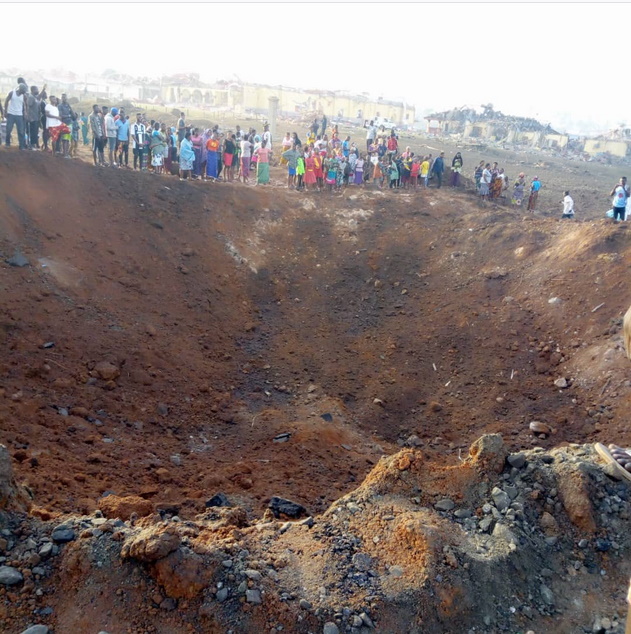
Governor Rotimi Akeredolu tweeted this morning he was on his way to the scene of a strange massive blast that rocked Akure, Ondo State capital overnight.
The blast, which occurred on Akure-Owo Road, was suspected to be from a meteorite
Like meteorites, the blast left a crater.
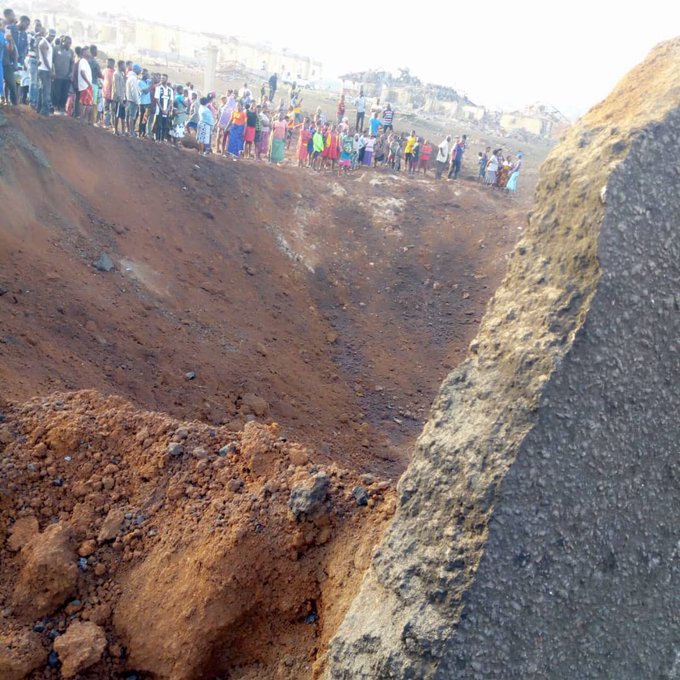
I've been briefed by security agencies in the state concerning the loud blast that was heard in Akure. I will be at the scene to assess on the advise of heads of our security agencies.
— Arakunrin Akeredolu (@RotimiAkeredolu) March 28, 2020
I ask that all citizens remain calm as we ascertain details of the incidence.Photographs published online from the scene, at a village near Akure Airport revealed the crater.
Many residents rushed to the scene early today.
Governor Akeredolu tweeted:
“I’ve been briefed by security agencies in the state concerning the loud blast that was heard in Akure. I will be at the scene to assess on the advice of heads of our security agencies.
“I ask that all citizens remain calm as we ascertain details of the incidence”.
I have been briefed by the security chiefs that in the early hours of Saturday March 28th, a vehicle in a convoy transporting explosives to a storage facility in a neighbouring state developed a fault while in transit along the Akure Owo Road about 2km from the Akure Airport. pic.twitter.com/3EnmmQBd1E
— Arakunrin Akeredolu (@RotimiAkeredolu) March 28, 2020Nigerian Tribune said the explosion caused some injuries and blew off the roof of a church nearby.
The newspaper said the explosion happened at Eleyowo village, less than a kilometre to Akure Airport. It said the impact destroyed a church and a school in the area.
-
david-manglideposted in News & Trends • read more

Chioma, wife of Nigerian singer, Davido, has tested positive for the deadly Coronavirus.Davido disclosed this on Friday on his Instagram page.
He wrote: “Hey everyone ! I came back recently from America after cancelling tour. My fiancé Chioma also came back from London recently with our baby.
“We had no symptoms and still both feel perfectly fine but because of our recent travel history we decided to take ourselves and our all close associates we’ve come in recent contact with for the COVID-19 test on the 25th of March.
“Unfortunately, my fiancé’s results came back positive while all 31 others tested have come back negative including our baby. We are however doing perfectly fine and she is even still yet to show any symptoms whatsoever. She is now being quarantined and I have also gone into full self isolation for the minimum 14 days.
“I want to use this opportunity to thank you all for your endless love and prayers in advance and to urge everyone to please stay at home as we control the spread of this virus! Together we can beat this!
Love, D ❤️” -
david-manglideposted in News & Trends • read more
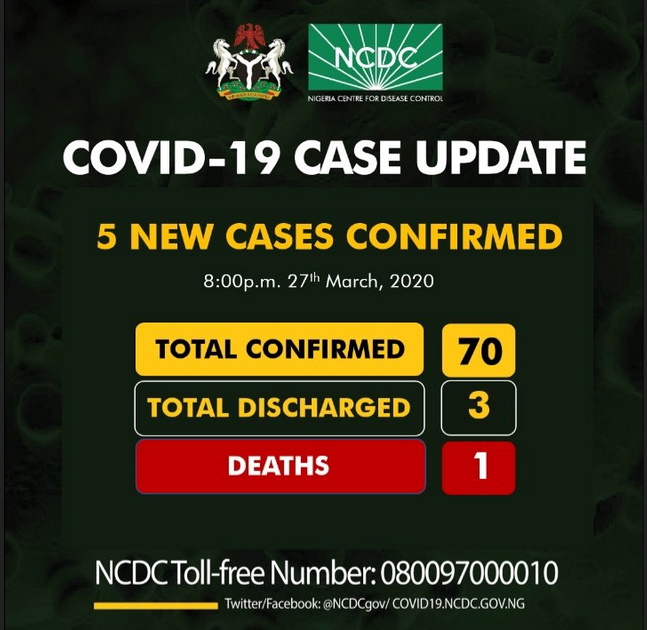
Five new cases of #COVID19 have been reported in Nigeria: 3 in FCT & 2 in Oyo StateAs at 08:00 pm 27th March there are 70 cases of confirmed #COVID19 reported Nigeria. 3 have been discharged with 1 death.
Five new cases of #COVID19 have been reported in Nigeria: 3 in FCT & 2 in Oyo State
— NCDC (@NCDCgov) March 27, 2020
As at 08:00 pm 27th March there are 70 cases of confirmed #COVID19 reported Nigeria. 3 have been discharged with 1 death. pic.twitter.com/ptbxknBV7bAs at 8:00 pm 27th March, there are
— NCDC (@NCDCgov) March 27, 2020
70 confirmed cases
3 discharged
1 death
For a breakdown of cases by states in real time, please see https://t.co/zQrpNeOfet
Currently;
Lagos- 44
FCT- 14
Ogun- 3
Ekiti- 1
Oyo- 3
Edo- 1
Bauchi- 2
Osun-1
Rivers-1 -
david-manglideposted in News & Trends • read more
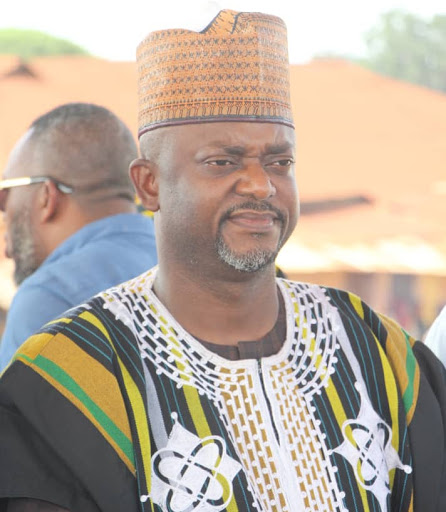
In its bid to prevent spread of Coronavirus, (COVID19), the Kogi State Government on Friday announced that there will be no movement of any kind in the state, ordering people to stay at home from Saturday.The government who spoke through the Deputy Governor of the state, Edward Onoja at a press conference at the Police headquarter, said the order will be in force by Saturday, 28 of March 2020.
Onoja, who is the Chairman of Kogi State Squadron Committee against the spread of COVID 19, said only people providing essential services, like pharmaceutical shops, food sellers, would be allow to come out, while commercial transporters, such as Okada, Tricycle operators and taxis will not be allow to operate till further notice.
The committee chairman equally said there would be no public gathering of any nature and also urged the people to keep social distances.
He, however, said six entry point to Lokoja, the state capital will be manned by security personnel to screen travellers from other Locations.
These areas, according to the Deputy governor includes; Nataco junction, Ganaja Junction, Zango, crusher junctions, among others.
He advised residents to remain faithful to the government decision and always report any suspected persons with high temperature fever, by calling these emergency numbers 07088292249, 08150953486, 0809522703 and 08043402122
-
david-manglideposted in News & Trends • read more
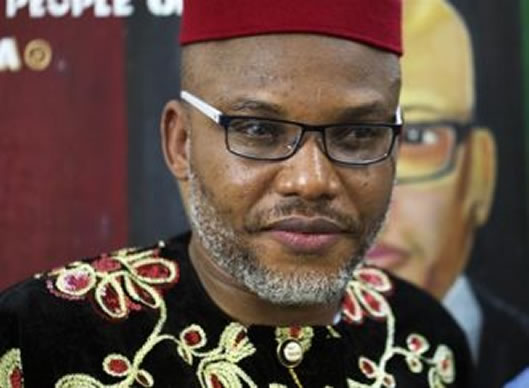
Nnamdi Kanu, leader of the Indigenous People of Biafra, IPOB, on Friday announced the donation of N50m to fight Coronavirus across Southeast Nigeria.Kanu made the announcement in a broadcast via Radio Biafra.
He said that part of the donation will be used to ensure some hospitals in the Southeast are equipped to fight COVID-19.
Kanu, however, noted the money donated was from the coffers of IPOB.
Kanu said: “We never knew that the virus is coming, we have commitments all over the world, we are committing initial N50 million to make sure we educate and prepare our people for what is to come. We budget N300m for the fight against Coronavirus.
“We will establish one hospital in every state of Biafra including Edo State. We are going to open a food store for the people. If you are to confine the people at home, you must make sure they don’t die of hunger. We are even going to feed those who are not IPOB members. This is what advanced countries are doing for their people.
“I am worried about Africa and humanity but my primary concern is for the people of Biafra.”
-
david-manglideposted in News & Trends • read more
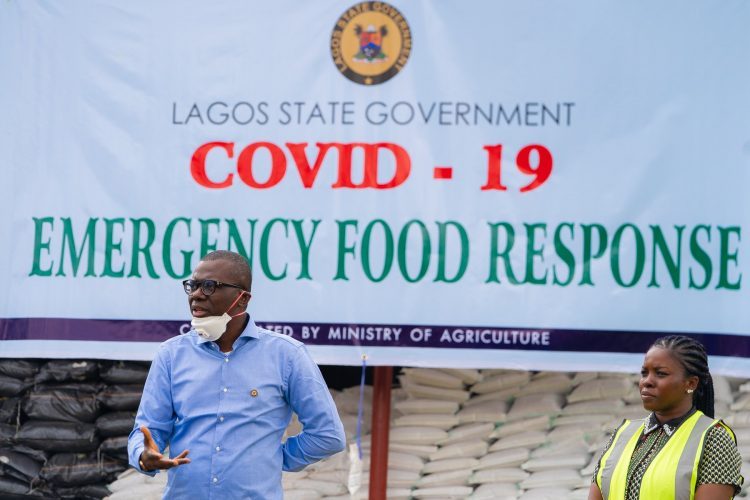
Babajide Sanwo-Olu has unveiled economic stimulus package for about 200,000 indigent and the most vulnerable in the society to cushion the effect of the coronavirus pandemic outbreak.This is coming few days after the Lagos State Government issued a stay-at-home directive to residents, in order to curtail the spread of the novel coronavirus.
The stimulus, which comes in food packs, to be distributed to every local governments in the State is aimed at cushioning the effects of the fourteen days stay-at-home directive.
Speaking after an on-the-spot assessment of one of the State-owned food banks located inside the premises of the Ministry of Agriculture in Oko Oba, Agege, Sanwo-Olu said the economic stimulus will reduce the burden of the temporary economic downturn on the citizens caused by the outbreak of COVID-19.
The Governor said the food packs, which were put together by the Ministry of Agriculture will reach the most vulnerable communities and households across Lagos, saying that the indigents who rely on daily wages will be given priority.
He said: ‘‘We are here for an on-the-spot assessment of our readiness, to see how we can fast track some of our stimulus packages for our citizens. We are all aware that this is a trying time for our citizens and since the partial drop in economic activities, our government deemed it necessary to reach out to the vulnerable ones in the society.
“These people are those that fall below the pyramid, the aged and the physically challenged who need to move from one part of the city to another for them to have a living. We felt that as a government, the least we can do is to identify them and give them these stimulus packages immediately.’’
The Governor stated that the packages will touch at least 200,000 thousand households in the first phase, saying the food packs were produced for a size of six people per household and would last for at least fourteen days.
‘’We have packaged dry food stimulus for about two hundred thousand families in the first instance for a household of husband, wife and about four children. We would be giving bags of rice, bags of beans, garri, bread, dry pepper and we are trying to see if we can add water and some elements of vitamin C. Each ration, we believe is going to be able to last them at least minimum 14 days just so our advocacy around stay at home, stay with your loved ones will be respected.
‘’This is a catalytic initiative of our administration with the hope that well meaning corporate organisations and private individuals can step up to complement the efforts of the government’’, Sanwo-Olu said.
The Commissioner of Agriculture, Prince Gbolahan Lawal earlier said the government would be working with the existing database of the state using the Lagos State Social register and 4,000 community development associations’ register in 377 wards.
He said the economic stimulus was parts of Governor Sanwo-Olu administration’s initiatives tailored towards ensuring that food security is sustained in Lagos.